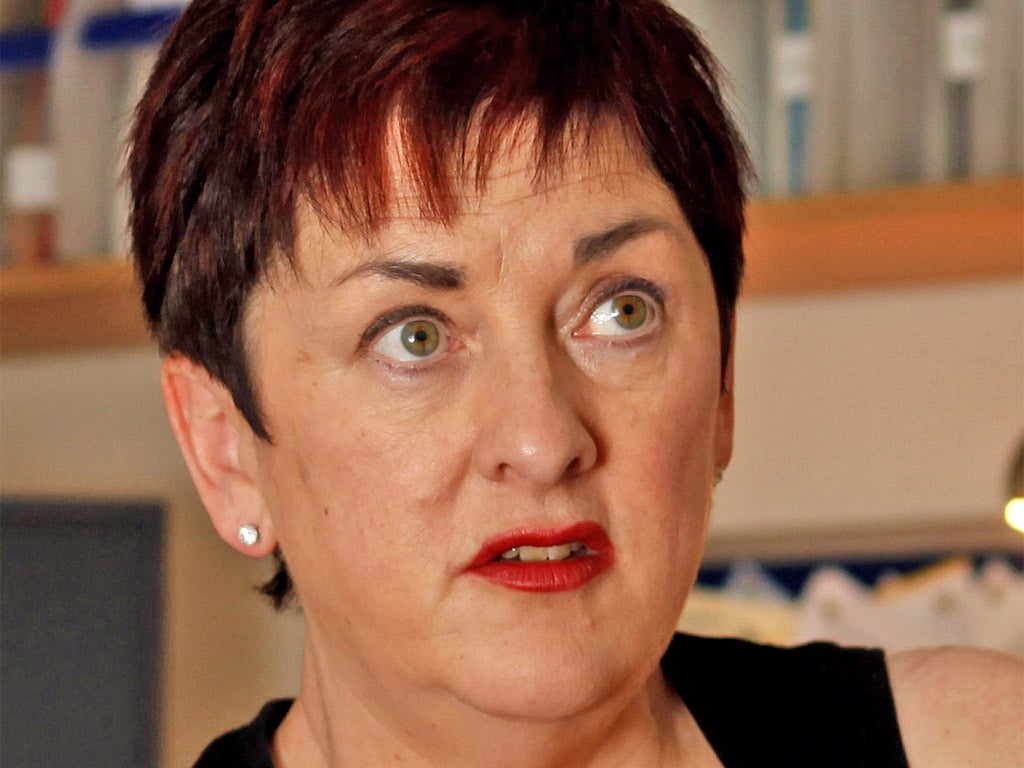Revealed: Education's great class divide
Teachers warn of 'toxic' effect of a socially segregated system

Schools are becoming increasingly segregated along class lines, teachers have warned – calling spending cuts and reforms that hit poor pupils the Coalition's "dirty little secret".
The poorest children are suffering most from the "toxic" effects of socially divided schools, according to the leader of the Association of Teachers and Lecturers. "We have schools for the elite; schools for the middle class and schools for the working class," Mary Bousted said. "Too few schools have mixed intakes where children can learn those intangible life skills of aspiration, effort and persistence from one another."
Dr Bousted, who heads the most moderate of the three teachers' unions, added: "This Coalition Government's attack on poor children is a blight upon our conception of ourselves as a civilised society. They remind me of a former Prime Minister who said there was no such thing as society."
Cuts which had affected the poor, she said, included:
* A 22 per cent cut in grants to Sure Start centres designed to give the under-fives a good start in life. This has led to the closure of 124 centres;
* The withdrawal of education maintenance allowances of up to £30 a week which encouraged poorer students to stay on in post-16 education;
* The removal of the ring-fence on funding for school meals at a time when the number of children entitled to free food at school has risen by 110,000;
* Cuts in local authority funding which have led to one in five councils axing the supply of library books to primary and secondary schools;
* A real-terms cut of 13 per cent in public spending on education by 2014-15.
Dr Bousted said: "If you are a child in a poor family, that is how you will feel now in 2012 – that you are on your own, alone with your parents or carers, with precious little help available, even though it is desperately needed."
She suggested schools were being used as scapegoats for problems in the education system, and ministers and the Ofsted inspectorate were ignoring their responsibilities. "The Secretary of State for Education, and his ministers and his hand-picked [Ofsted Chief Inspector] are pulling a con trick," said Dr Bousted. "They are seeking to wash their hands, like Pontius Pilate, of all the causes of educational failure over which they have more control than anyone else.
"In [Education Secretary] Michael Gove and [Schools minister] Nick Gibb's world, it is the school, and only the school, that holds responsibility for the educational outcomes of the poor. If the poor do not make as much progress as the rich, it is the school and the teachers within it who are to blame.
"This, as you and I know, is a nonsense. It is a lie which conveniently enables ministers to evade responsibility for the effects of their policies. This is the Coalition Government's dirty little secret. This is what they have done, to make the lives of poor children, already disadvantaged and demeaned through their poverty, harder. So it makes sense for them to divert attention away from their destructive policies. It makes sense to unleash a torrent of criticism at schools and school leaders and staff who work, every day, not with political rhetoric but with pupils' lives – lives with which they strive desperately, and with diminishing state support, to improve."
Dr Bousted argued that it was not enough to say, as Mr Gove had, that children were held back by "chains of low expectation". "Schools cannot vanquish these inequalities. They can ameliorate them but, in vastly unequal societies only the brightest will escape the lasting effects of inequality," she said.
"If we are to improve educational outcomes for all, if we are to achieve equal outcomes based on aptitude and ability, we need more than an education agenda, we need a social agenda that fights poverty and inequality."
A spokeswoman for the Department for Education accused Dr Bousted of "defending a culture of underachievement", saying: "Schools cannot solve all problems. It is clear though, that a lot of schools have not properly addressed poor performance.
"The public and many teachers will be confused that union leaders dislike the idea of schools being given the freedom to pay good teachers more."
Join our commenting forum
Join thought-provoking conversations, follow other Independent readers and see their replies
Comments
Bookmark popover
Removed from bookmarks